“In all this the youth get even more restive and angry and clamour for a better future,” the Catholic Church leader, who expressed a “vote of confidence” in Nigerian youth in his Christmas 2023 Message says.
In his analysis of the West African nation, Bishop Badejo says that “too little good is happening too slowly to alleviate the people’s sufferings” and that as a result, “millions have become beggars, living on handouts and palliatives while others simply turn to crime in various forms.”
 Bishop Emmanuel Adetoyese Badejo of Nigeria's Oyo Diocese. Credit: Bishop Emmanuel Adetoyese Badejo
Bishop Emmanuel Adetoyese Badejo of Nigeria's Oyo Diocese. Credit: Bishop Emmanuel Adetoyese Badejo
“In a country so blessed and endowed with natural, human and intellectual resources as Nigeria, this is totally unacceptable and must change,” he continues, underscoring the need to alleviate the suffering of the people of God in Africa’s most populous nation.
He adds, “We must arrest the mass murder and maiming of our compatriots of whatever tribe, by unjust aggressors and even by state agencies that are paid to protect them and be contented with cliches and patronizing statements from our leaders which achieve next to nothing.”
(Story continues below)
The Catholic Church leader, who was appointed member of the Vatican Dicastery for Communications in December 2021 calls on Nigerians to “rebuke leaders”, who do not foster the common good.
“We should no longer tolerate those in positions of authority and power who merely look on or even participate in monumental fraud and injustice, perpetrated against the very people and the commonwealth they claim to serve,” he says, adding, “We must rebuke leaders who divide rather reconcile us with one another. Leadership conducted in that manner has no legitimacy and should be rejected.”
 Bishop Emmanuel Adetoyese Badejo of Nigeria's Oyo Diocese. Credit: Bishop Emmanuel Adetoyese Badejo
Bishop Emmanuel Adetoyese Badejo of Nigeria's Oyo Diocese. Credit: Bishop Emmanuel Adetoyese Badejo
“In 2024 Nigerians should know that life is temporary and power at any level is meant for service,” he further says, and appeals to those in positions of authority to “know that they will be judged in history and eternity by the good that they do for others and for the common good in the present.”
Bishop Badejo invites Nigerians to introspection, and proposes a series of questions as a guide. He says, “Let us all ask: What am I really here for? What will I be remembered for?”
“The joy of every sane human being is to make as many people as possible happy, make as many lives as possible better, while we can,” he emphasizes.
The 62-year-old Nigerian Bishop, who started his Episcopal Ministry in October 2007 as Coadjutor Bishop of Oyo Diocese goes on to advocate for what he describes as “the ideals of authentic, servant-leadership” in Nigeria.
“Let 2024 be the year when we make a fresh vow of transformation to revive the ideals of authentic, servant- leadership among us, namely: honesty, accountability, selflessness, solidarity, generosity of spirit and a sense of justice,” he says in his New Year Message shared with ACI Africa on Sunday, December 31.
 Bishop Emmanuel Adetoyese Badejo of Nigeria's Oyo Diocese. Credit: Bishop Emmanuel Adetoyese Badejo
Bishop Emmanuel Adetoyese Badejo of Nigeria's Oyo Diocese. Credit: Bishop Emmanuel Adetoyese Badejo
Bishop Badejo also advocates for “authentic religion”, and cautions “all Nigerians and especially the youth” against the tendency to make “religion the scapegoat for our woes. We would all be much worse off without faith in God.”
“Every sector of society, like politics, the economy, the media etc. unfortunately all have many charlatans and fakes operating in them. So does religion, be it Christianity Islam or Traditional religion,” he explains.
The President of CEPACS advocates for “authentic religion”, which he describes as “a positive catalyst, a stabilizer, a force for good, for our decisions, conduct, sentiments and relationships and has done a lot for the common good over time.”
“Let us imbibe authentic religion and shun all false prophets so that we may reap full benefits of our religious sensibilities and joy and peace shall return to us, Bishop Badejo says, and wishes all “Happy New Year.”
Fr. Don Bosco Onyalla is ACI Africa’s founding Editor-in-Chief. He was formed in the Congregation of the Holy Ghost Fathers (Spiritans), and later incardinated in Rumbek Diocese, South Sudan. He has a PhD in Media Studies from Daystar University in Kenya, and a Master’s degree in Organizational Communication from Marist College, New York, USA.
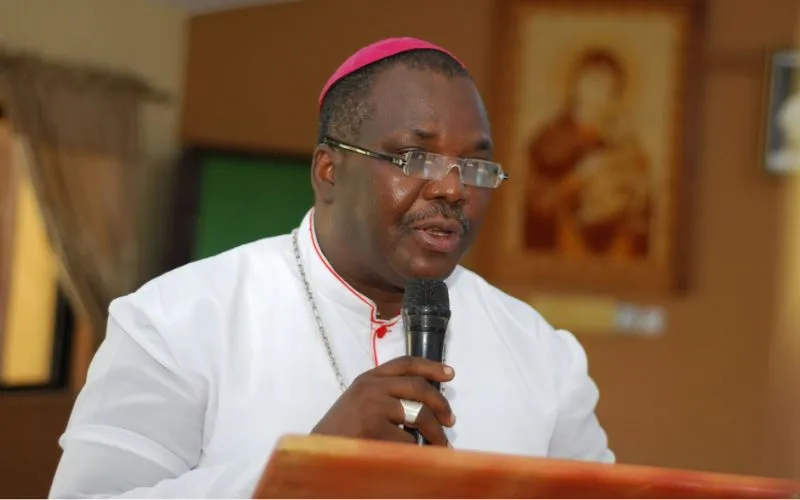 Bishop Emmanuel Adetoyese Badejo of Nigeria's Oyo Diocese. Credit: Bishop Emmanuel Adetoyese Badejo
Bishop Emmanuel Adetoyese Badejo of Nigeria's Oyo Diocese. Credit: Bishop Emmanuel Adetoyese Badejo


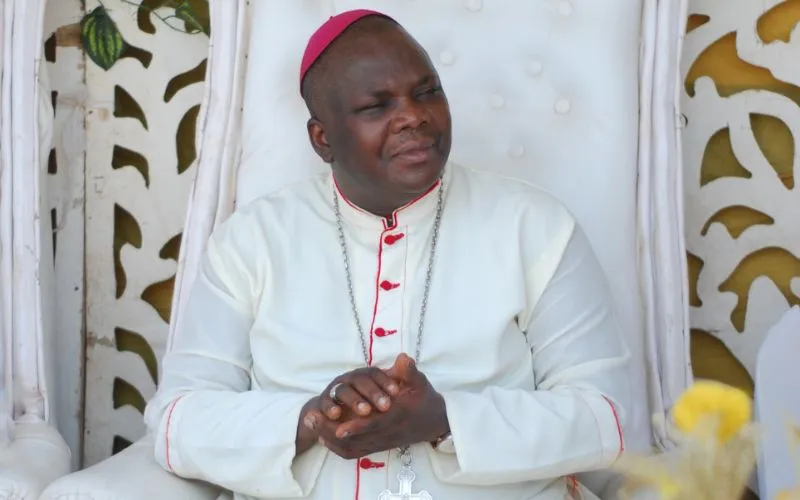
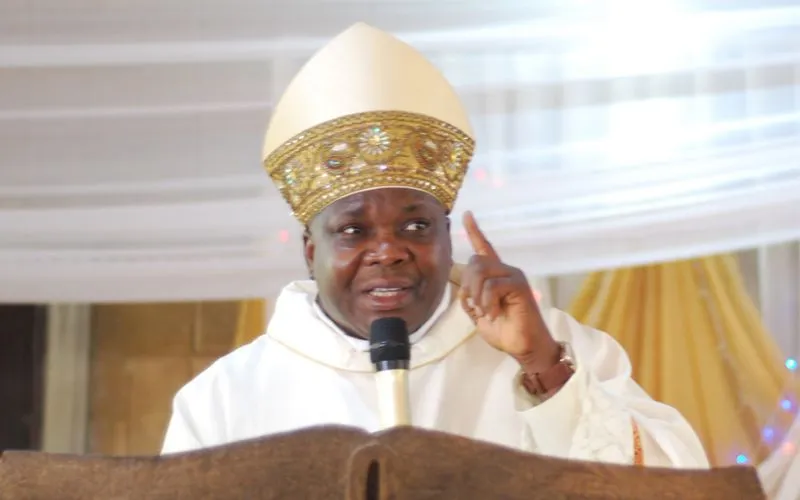 Bishop Emmanuel Adetoyese Badejo of Nigeria's Oyo Diocese. Credit: Bishop Emmanuel Adetoyese Badejo
Bishop Emmanuel Adetoyese Badejo of Nigeria's Oyo Diocese. Credit: Bishop Emmanuel Adetoyese Badejo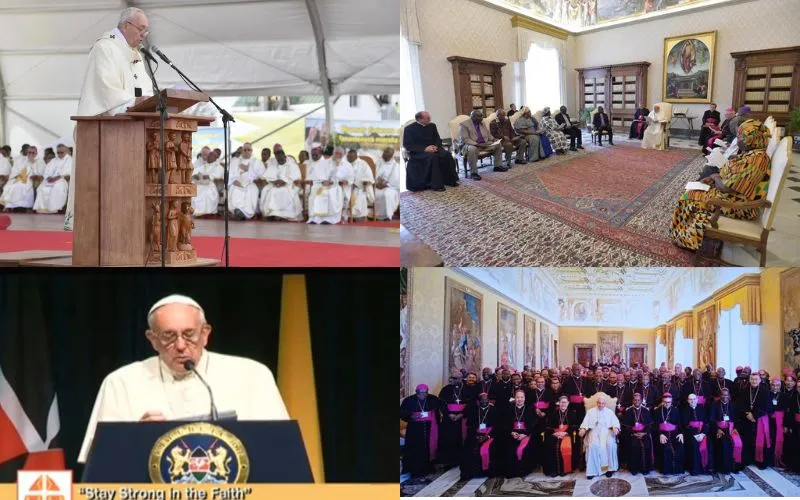
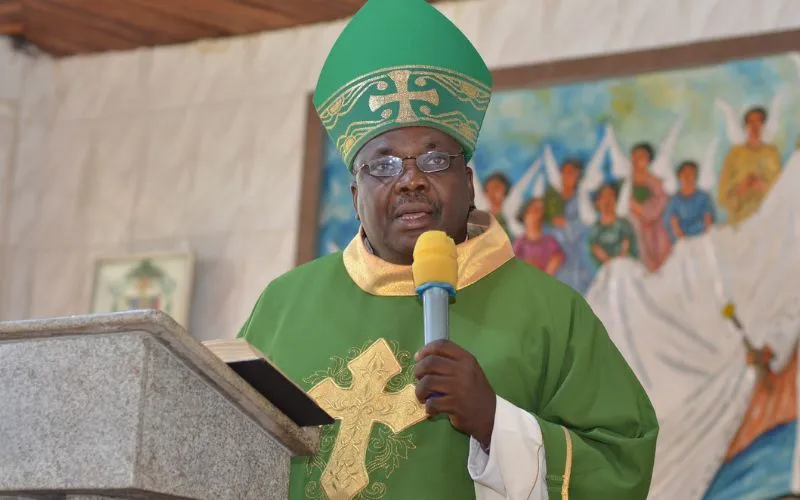 Bishop Emmanuel Adetoyese Badejo of Nigeria's Oyo Diocese. Credit: Bishop Emmanuel Adetoyese Badejo
Bishop Emmanuel Adetoyese Badejo of Nigeria's Oyo Diocese. Credit: Bishop Emmanuel Adetoyese Badejo Bishop Emmanuel Adetoyese Badejo of Nigeria's Oyo Diocese. Credit: Bishop Emmanuel Adetoyese Badejo
Bishop Emmanuel Adetoyese Badejo of Nigeria's Oyo Diocese. Credit: Bishop Emmanuel Adetoyese Badejo Bishop Emmanuel Adetoyese Badejo of Nigeria's Oyo Diocese. Credit: Bishop Emmanuel Adetoyese Badejo
Bishop Emmanuel Adetoyese Badejo of Nigeria's Oyo Diocese. Credit: Bishop Emmanuel Adetoyese Badejo Bishop Emmanuel Adetoyese Badejo of Nigeria's Oyo Diocese. Credit: Bishop Emmanuel Adetoyese Badejo
Bishop Emmanuel Adetoyese Badejo of Nigeria's Oyo Diocese. Credit: Bishop Emmanuel Adetoyese Badejo


